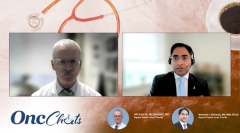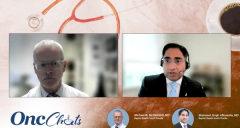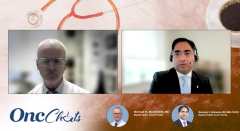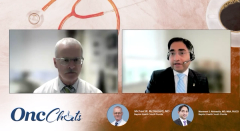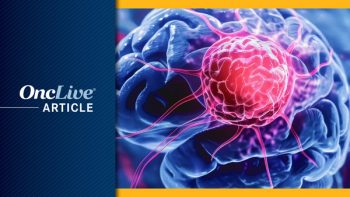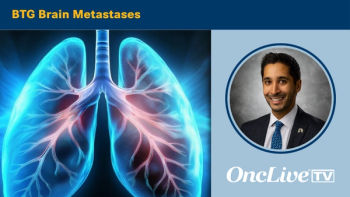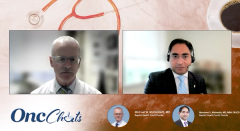
Examining LIFU-Aided Liquid Biopsy in Glioblastoma: Key Objectives of the LIBERATE Trial
In this third episode of OncChats: Examining LIFU–Aided Liquid Biopsy in Glioblastoma, Manmeet Singh Ahluwalia, MD, MBA, FASCO, and Michael W. McDermott, MD, discuss the LIBERATE study (NCT05383872) examining low-intensity focused ultrasound in patients with glioblastoma.
Episodes in this series

In this third episode of OncChats: Examining LIFU–Aided Liquid Biopsy in Glioblastoma, Manmeet Singh Ahluwalia, MD, MBA, FASCO, and Michael W. McDermott, MD, both of Baptist Health South Florida, discuss the LIBERATE study (NCT05383872) examining low-intensity focused ultrasound (LIFU) in patients with glioblastoma.
Ahluwalia: Thank you for sharing that, Mike. The first patient that [Dr McDermott] treated in the state of Florida was part of a bigger trial called LIBERATE; this is an FDA approval study [that will include] up to 50 patients who will [receive] LIFU. The intent of that trial is to see at least a two-fold increase in the circulating [tumor] DNA [ctDNA] of patients with glioblastoma, whether they are newly diagnosed or [have] recurrent [disease].
[In this] study, [we are looking] at the level of ctDNA in these patients before the procedure is done. Then, after the procedure is performed, we [will] collect blood at 30 minutes, an hour, and a couple hours after that. The FDA approval discussion [established that the trial would be successful] if [we observe] a two-fold increase in the level of ctDNA, and there is more than 75% concordance between what we find in terms of genomics of ctDNA that matches up with the surgery that neurosurgeons like Dr McDermott will do for patients [when] clinically indicated.
The trial is ongoing at multiple sites in North America, including Miami Cancer Institute, Mayo Clinic, and NYU [Langone]. The study is also open at University of Maryland, [as well as] a site in Toronto at Sunnybrook [Research Institute]. Numerous other sites are in the process of opening it.
Check back next Tuesday for the next episode in the series.


